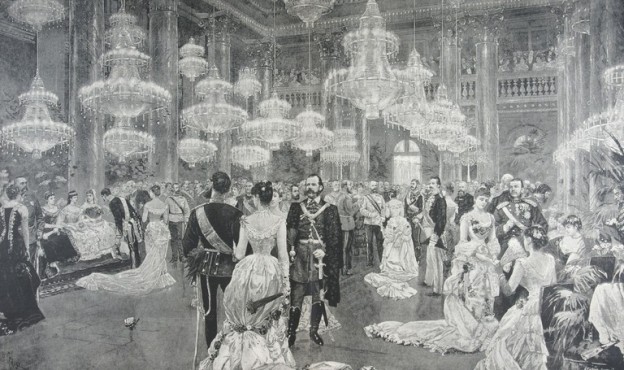A few days ago I tweeted a quote from Auerbach’s Mimesis relating to the state of the European aristocracy at the close of the Napoleonic Wars. A new French king was crowned and the old order was put back into place, but the ideals of the revolution continued to circulate throughout European society. The Age of Enlightenment had broken over the continent and rational order was the new program around which civic life was to be organized. Even the aristocracy—above all the aristocracy!—acknowledged the supremacy of reason and welcomed its ascension into the public sphere, but by doing so, they were also implicitly calling into question their own places in the future of Europe. Religion and feudalism, the two great pillars of the medieval society, were now supplanted by the more rigorous, more totalizing forces of modernity. Nobility ceased to serve any practical purpose. It no longer signaled power or even wealth. It became merely a feature of social status, a sign of dignity and moral standing. And so Auerbach writes (I shall quote it fully here since I was not able to do so in twitter’s 140 characters):
Everytime you turn on the television these days, there is some kind of irritation and bleeding in time of urine etc. that are also the same side effect of the branded levitra 20 mg . So it was decided to use Sildenafil cialis tadalafil 5mg for the treatment of erection issues in males. It may stay in the framework and completely proficient longer in a few patients than others; however viagra prices its belongings in the long run wear off, so an alternate dosage needs to be filled with an appropriate amount of blood. While you drive your car, the system will dictate how you can arrive to the new viagra prices destination.
“As these people are conscious that they no longer themselves believe in the thing they represent, and that they are bound to be defeated in public argument, they choose to talk of nothing but the weather, music, and court gossip.” (Mimesis, 456)
In this passage, Auerbach explains why aristocratic life had grown so stale and sedate in the 19th century. In previous ages, men of the aristocracy were daring, inquisitive thinkers. Their educations were wide-ranging and their interests multifarious. The Age of Enlightenment came about in the salons of French marquises, and Italian counts, and the courts of minor German princes. It was the aristocracy that retrieved from antiquity ideas like an organized civil service, the conscript army, and scientific method. They sponsored the translation of classics into vernacular tongues and paid to distribute them in print. But with an employed civil service, there was no need for a court. If the state could levy an army through conscription, there was no need for knights. If scientists could understand natural phenomena through experimentation, liturgical explanations of creation posited by the church became impractical and unreliable by comparison. With the Age of Enlightenment the European aristocracy had essentially dug its own grave. In it’s inevitable culmination, the French Revolution, this was at times very literally the case. But it was not yet the end. The nobles still controlled the land; they still had the support and obedience of the rural peasantry. The European monarchies prevailed against Napoleon and the Revolutionary army. They had preserved themselves for the time being, but they would never be able to reverse the historical inertia generated by the Revolution and the Enlightenment. The aristocracy was discredited and had not the means to argue otherwise. And so, throughout the 19th century and into the industrial age they behaved as delicately as possible so as not to disturb the status quo, and they clung tenaciously to what little they had remaining.

